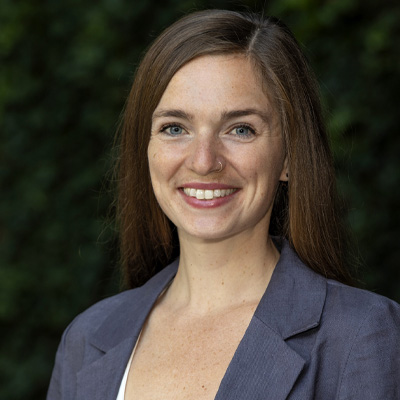Keavy McFadden
 Assistant Professor of Geography
Assistant Professor of Geography
Storm Hall 311B | [email protected]
Keavy McFadden (she/her) is an assistant professor in the Department of Geography at San Diego State
University. She earned her Ph.D. in geography from the University of Minnesota Twin
Cities. Before joining SDSU, she served as the Kelter Postdoctoral Fellow in Urban
Studies at Trinity College’s Center for Urban and Global Studies.
McFadden’s research focuses on the intersections of urban development, education,
and social reproduction. She critically examines how educational infrastructures shape
urban life and contribute to broader socioeconomic inequities. Her publications include
topics such as the transformation of school facilities into residential real estate,
the intersections of social reproduction and public finance, and the role of teacher
and labor organizing in cities. Her latest research project explores community-led
calls for a Green New Deal that emphasizes investments in social housing and public
education. Her work has received support from fellowships and grants from the National
Science Foundation, the Interdisciplinary Center for the Study of Global Change at
the University of Minnesota, and the Graduate School of the University of Minnesota.
Additionally, she is a co-founder and co-editor of AGITATE!, an online, open-access
platform that examines the possibilities and challenges of interweaving scholarship,
activism, and artistry in the pursuit of justice.
Passionate about teaching and mentoring students, McFadden teaches courses on urban
geography at San Diego State University, including "Geography of Cities" and "World
Cities." She is committed to creating an inclusive and engaging learning environment
where students critically engage with urban narratives and apply geographic concepts
to real-world issues.
McFadden is eager to work with graduate students on research projects aligned with
her interests. Potential areas for collaboration include education politics, urban
development and gentrification, spatial inequality, social reproduction, urban social
movements, labor organizing, housing struggles, climate justice, and community-engaged
research. She welcomes inquiries from prospective graduate students interested in
these areas.